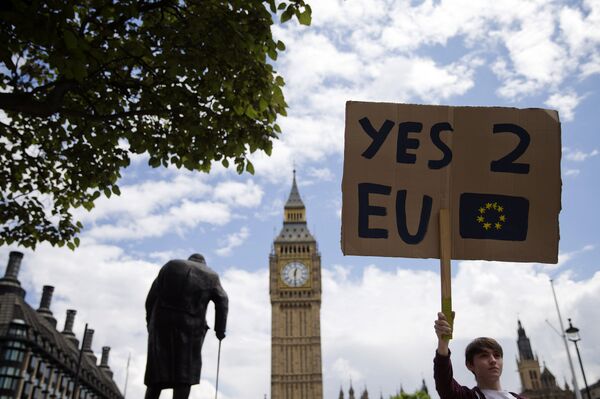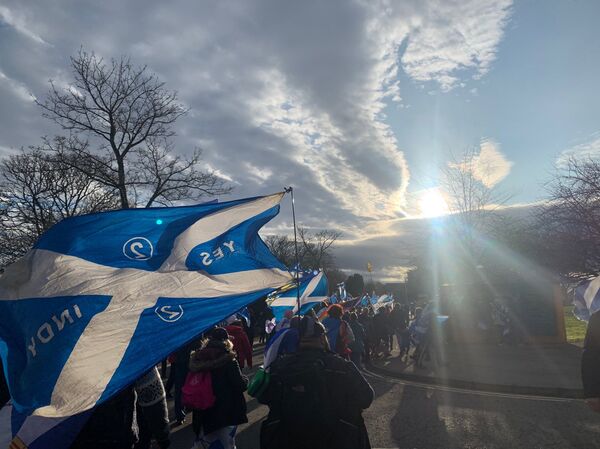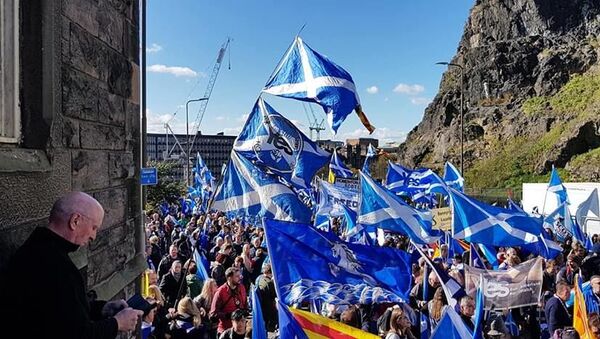Current SNP MP and former SNP MSP and Justice Minister, Kenny McAskill, has raised his head above the parapet and treated the movement like adults by admitting what is obvious to all but the willfully blind.
Voting SNP in both the Constituency and Regional List ballots at next May's Holyrood election is not just a wasted vote it also helps the very unionist politicians we seek to defeat.
When the unionist politicians at Westminster could no longer resist the calls for greater devolution of powers to Scotland in the face of a small nation constantly being saddled with a hostile government it didn't vote for, they specifically opted for a voting system designed to prevent any one party becoming overly dominant.

Although the SNP were not the huge force back in 1997 as they are now, unionist strategists predicted the rise of nationalist sentiment and sought to short circuit the chances of Scotland ever being governed by an independence supporting majority through the introduction of the Additional Member Voting System (AMS) instead of the First Past the Post (FPTP) one used at Westminster.
The AMS system is semi-proportional and certainly better than FPTP but it was not concerns with enhancing democracy which fuelled the unionist architects of the Scottish Parliament but rather a desire to ensure the nationalists never secured an overall majority of seats.
Scottish Parliament Voting System is Complex but Predictable
The AMS system provides for the election of 73 Members of the Scottish Parliament (MSPs) on a constituency basis using the FPTP system but sees Scotland split into eight electoral regions with between eight and ten constituencies within each region. Seven List MSPs are elected from each region giving a total of 56. The vagaries of the system mean parties that do well in the constituency section of each region invariably do less well in the List section as their overall List vote, called the Regional or 2nd vote, is divided by the number of constituency seats they win plus one.
In my own city of Glasgow, which voted YES for independence in 2014, the SNP secured 111,101 List votes. That represented 45% of all the Regional List votes cast in the city. So how many Regional List seats did they win? The answer is zero. They won all of the nine constituency seats, so their List vote total was divided by 10 (the 9 constituency seats plus one equation attached to the AMS voting system).
The SNP's 111,101 List votes were slashed to only 11,110 and that was not enough to win a List seat in Glasgow. Instead, unionist Labour with only 24% of the votes won 4 of the seven seats available, the Tory unionists with only 12% of the vote won 2 of the seats and the independence supporting Green Party with 9.4% of the votes (representing 23,398 votes) secured the last of the seven List seats for Glasgow.
It means the YES City of Glasgow is represented by 6 List MSPs who are declared unionists and do all they can to talk Scotland and the cause of independence down.
Those independence supporters who gave both their votes to the SNP in Glasgow not only wasted their vote they inadvertently assisted the election of unionists.
The voting system pitfalls of the "both votes SNP" strategy promoted by the SNP were highlighted by myself and others but the warnings were ignored, dismissed or denigrated.
Giving SNP Both Votes in Scottish Parliament Elections Helps Unionists
Across Scotland, an incredible 953,000 people gave their Regional List vote to the SNP but in six of the eight regional list seats, those votes counted for nothing. The SNP won only 4 Regional List seats out of the 56 available. One seat was one in the Highlands and Islands region and three were won in South Scotland.
This was not an unforeseen problem or outcome. It was predicted but virtually ignored. The appeals to the Indy supporting community to use their votes wisely fell largely on deaf ears. I urged YES supporters to cast both their votes for the independence cause. Their constituency vote for the SNP, the main party of independence, but the 2nd vote for another progressive and anti-austerity pro-independence alternative.

Four years on and there are clear signs that the lessons of 2016 have sunk in and the independence supporting voters are willing to cast their votes wisely like the intelligent adults they are.
The fact even sitting SNP MPs like Kenny McAskill are now willing to admit the "two votes SNP" strategy "doesn't work" for the independence cause is significant progress. A remarkable poll commissioned by the independence supporting website "Wings over Scotland" less than a week ago graphically illustrates the potential for independence tactical voting to wipe out unionist representation at Holyrood and make the road to independence even more certain.
That poll indicated support for a new independence supporting party led by former SNP leader and First Minister Alex Salmond, could claim as much as 45% of the 2nd votes of independence supporting voters, including 31% of Labour supporters’ 2nd votes, reflecting the sizeable proportion of Labour voters who also support Scottish independence.
This poll and other credible surveys like the one conducted by Indy supporting Business For Scotland indicating well over half of SNP voters are now open to the idea of supporting an independence alternative party of the group on the List next May is dynamite for Scotland and the promotion of the independence agenda.
The Independence Cause is Bigger Than Any One Party or Individual
The cause of independence is much bigger and more important than the narrower party interests of the SNP. Kenny McAskill was criticised for his open and honest 2nd vote comments by the current SNP Education Minister on the BBC Radio Good Morning Scotland show today but the reality of the voting system cannot be ignored or deflected any longer. The cause of independence can only be strengthened by even bigger independence supporting a majority of MSPs being elected. The majority threshold is 65 seats. The SNP on their own won 63 seats in 2016 but the Greens 6 seats won on the List amounts to a narrow independence majority. That narrow majority can become a massive majority if the 2nd vote strategy is sorted.
Talk of Alex Salmond launching an alternative independence vehicle specifically to contest seats on the List next May could be premature and speculative but it is not outlandish to believe that the man who almost led Scotland to her independence in 2014 may fancy being part of the process again within the Scottish Parliament as an elected MSP with a renewed independence mandate. From the correspondence, I have read and discussions I have been involved in I would certainly not rule it out.

Even without Alex, however, the potential for a well organised, progressive, disciplined, and effective alternative independence supporting group or party to harness enough votes to secure scores of seats at the expense of unionists is huge and real. The most recent opinion poll of Scottish Parliament voting intentions in the constituency section put SNP support at an incredible and commanding 55% only five days ago and support for independence at 54%, a significant increase since March.
The fact Scotland comprehensively rejected Johnson and his Tory Spivs in December’s election, their record of lies and failings throughout the Covid19 Pandemic and the prospect of them remaining in office until 2024 makes the Scottish Parliament elections next May the most significant since the Parliament was reconvened in 1999.
All the vital political issues affecting working-class communities in Scotland are linked to the constitutional question. The future of the NHS, generating proper and secure jobs in a thriving economy, progressive taxation, quality and all-encompassing education, removal of immoral and illegal nuclear weapons from Faslane in Helensburgh, guaranteed living wages and a welfare system that genuinely supports those in need are all integrally connected to Scotland securing freedom from the restrictive, negative and exploitative British union which holds the country back from realising its real potential.
In the interests of Scotland's people, it is incumbent upon the whole independence movement to read the writing on the wall and agree in an honest, open and mature fashion that progressive independence supporting List or party stands next May and sweeps up the seats that would otherwise be won by the useless and spineless unionists who only serve themselves and the outdated British union whose time is over. Let battle commence.


